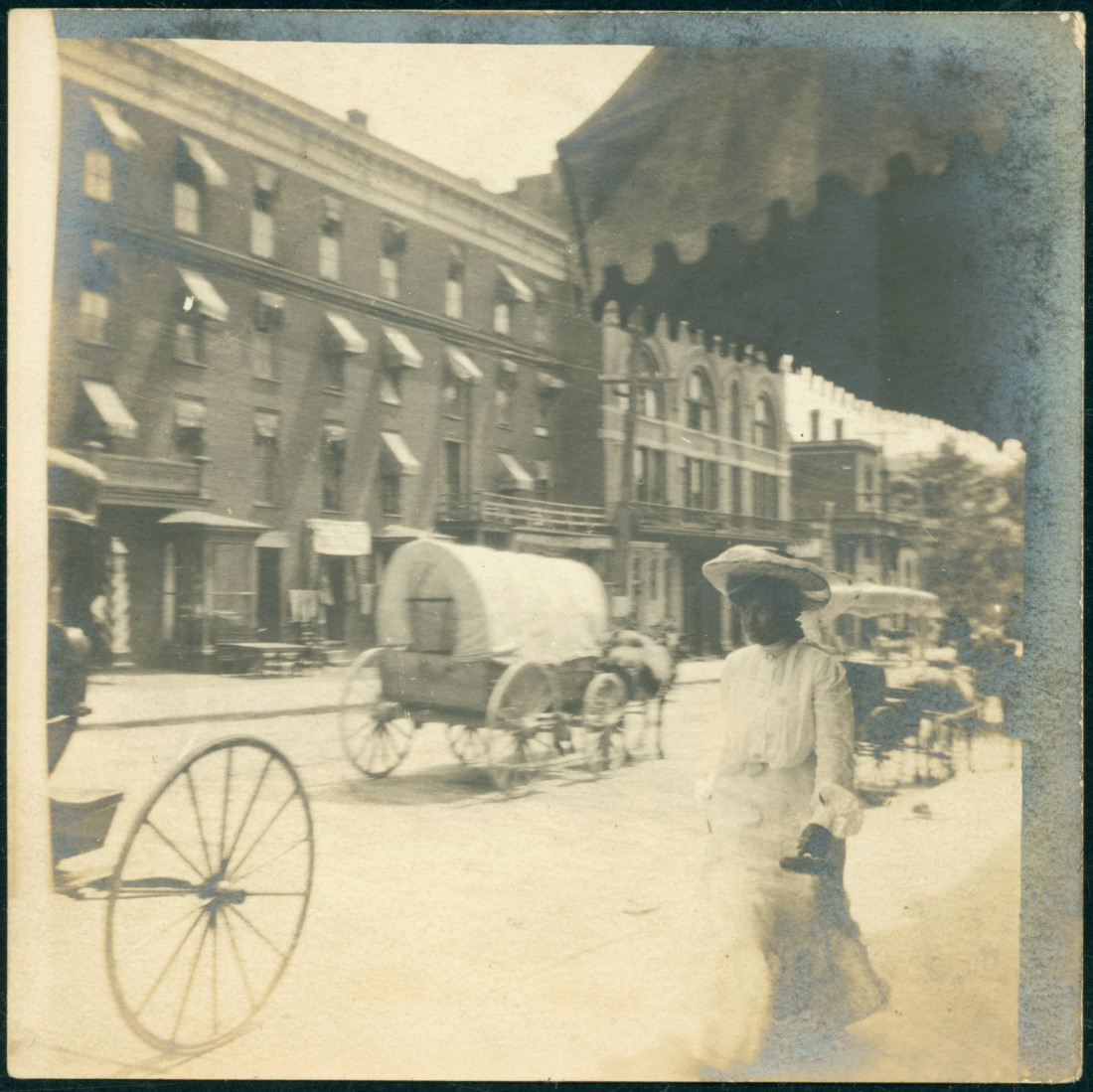Often history is lined with important names and significant dates. But, dear reader, have you ever pondered what our city’s past smelled like? Well, sniff no more for those long-ago traces! As it turns out, the June 29, 1888, edition of The Asheville Citizen offered its readers a sensory-rich exploration of downtown (and in the process captured the sights and smells for all of posterity).
That day the paper described a covered wagon, filled with filth, driving along the city’s principal streets. According to the article, the vehicle infused the air with a stench that was “sickening beyond description.”
Of course, the paper wasn’t opposed to the wagon’s actual service. Trash removal was a dire need. But the newspaper did object to the vehicle’s daytime operation. “The city authorities should put a stop to the practice, even if the price charged for this removal is made three times what it is now,” the article declared. “Have it removed at night.”
The wagon’s visibility, argued the paper, damaged Asheville’s reputation as a salubrious city. The newspaper also protested subjecting its female residents to such grime, declaring: “Ladies walk the streets of Asheville … and it is a shame that these wagons should be boldly driven along, almost by their side, the odors, foul and sickening enveloping and surrounding them on every hand.”
Along with ridding the streets of these unsightly vehicles and odious smells, a related debate continued over what to do with the very detritus these wagons hauled off. On Feb. 5, 1889, The Daily Citizen reported on a sanitary convention set for the following day in Raleigh. The event would include several presentations, including “The Gains of Sanitation,” by one Dr. J.W. Jones, as well as “The Cremations of Garbage,” by Dr. Thomas F. Wood. The convention, The Daily Citizen noted, “will no doubt impress on the public mind the fact that the sanitary care … belongs to all citizens and in some degree to the State and Federal governments.”
Yet despite all this talk, little progress seemed to be made. On Aug. 5, 1890, the Asheville Daily Citizen asked, “Who collects garbage in Asheville, and how much and when?” The brief article lampooned the overall sanitary conditions of the city. It noted that only in commercial areas were costly attempts made to create “the appearance of a model health resort.” However, the article continued:
“[T]here are many ‘off’ spots, broken and muddy sidewalks, shanty stores with hen coops in front to pollute the air, display windows thick with dust, offices no lady with due regard for the cleanliness of her skirts would want to enter.
“Perhaps worse than all, because really dangerous to health, is the throwing of garbage — watermelon rinds, banana peels, rotting fruit — into the street or nearby to poison the air that is Asheville’s chief stock in trade, her main reason for existence as a city.”
Fortunately for residents, the ever-so-wise city finally got its act together. On Nov. 23, 1893, The Citizen reported:
“The authorities [have] turned their attention to the French Broad, with the result that it was decided to dump the garbage into the river. Entrance for the teams was made on the river bank below the railroad bridge, so that teams can be driven some distance to the river and the barrels emptied there, and the change went into effect today.”
OK, we admit it. Sometimes history stinks.
Editor’s note: Peculiarities of spelling and punctuation are preserved from the original documents.





I remember a vivid paragraph from “Grandpa’s Town” by the late Bob Terrell – he described the little fruit stand run by Greek immigrant Harry Chepriss (sp?) on Lexington Avenue, and mentioned that one of his regular customers was a bearded man named McNabb, who drove the city’s “honey-wagon” that collected the contents of all the city’s slopjars. Said he’d always buy 2 bananas and eat them quickly, tossing the peels over his shoulder into the sloshing tank and drive off, a cloud of flies following him….